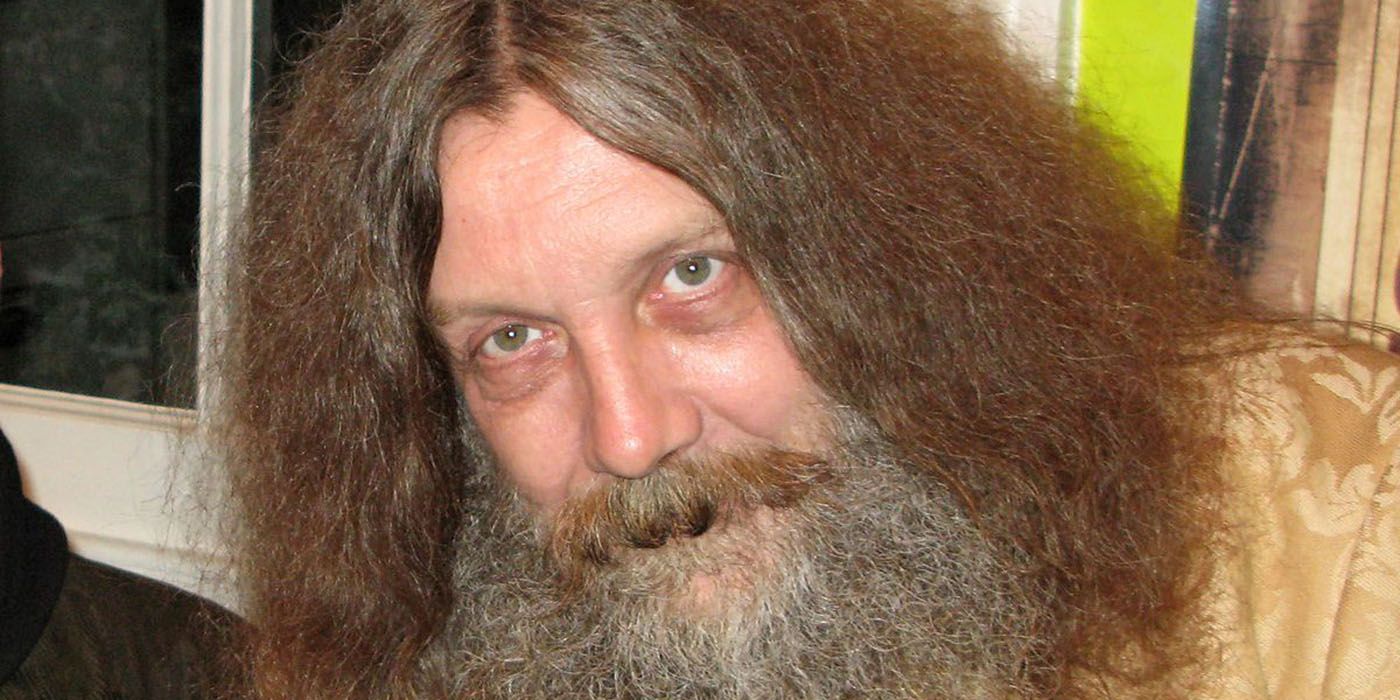A three-year-old statement from comics writing legend and ceremonial magician Alan Moore on the state of superhero culture has resurfaced. Moore is often cited as the beginning of the British Invasion of UK comics writers in the ‘80s with The Saga of the Swamp Thing, and is best known as the creator of the likes of Watchmen, V For Vendetta, The League of Extraordinary Gentlemen, The Killing Joke, From Hell, Lost Girls and The Ballad of Halo Jones.
A number of Moore’s works have been adapted for the big screen, namely all but the latter two of those mentioned above, the films typically taking only the most superficial of inspiration from what are often lengthy and thematically deep works. Due to the work-for-hire contracts under which his early work was published, he had no rights over what was done with his creations, and since then has distanced himself from the work that made him famous. He refuses on-screen credits and royalty payments, and is reluctant to discuss the comics or adaptations of them, the anger over his treatment at the time having never dissipated contributing to a perception of him as a cantankerous old man.
Moore made the comments in an interview posted to Alan Moore World, a site dedicated to the man and his works. Although the interview was first published in January 2017 for the release of his historical fantasy epic Jerusalem, it was conducted for a Brazilian website and only appeared in abridged form and in Portuguese, and has now become relevant due to having only just been made available in its entirely in English. In it, Moore states that the current impact superheroes have on contemporary culture is “both tremendously embarrassing and not a little worrying” due to the “franchised übermenschen” being aimed at audiences beyond young teens serving an altogether difference purpose.
“Mass-market superhero movies seem to be abetting an audience who do not wish to relinquish their grip on (a) their relatively reassuring childhoods, or (b) the relatively reassuring 20th century. The continuing popularity of these movies to me suggests some kind of deliberate, self-imposed state of emotional arrest, combined with a numbing condition of cultural stasis that can be witnessed in comics, movies, popular music and, indeed, right across the cultural spectrum. ”
He went on to suggest that another troubling aspect of films is their focus on white male heroes and lack of much in the way of diversity, stating:
“These books and these iconic characters are still very much white supremacist dreams of the master race. In fact, I think that a good argument can be made for D.W. Griffith’s Birth of a Nation as the first American superhero movie, and the point of origin for all those capes and masks.”
While Moore has a valid point about the proliferation of white men that largely populate superhero films, that was largely down to the mandate handed down by the now-former Marvel Entertainment CEO Ike Perlmutter rather than the desires of the creatives Moore seems to be deriding. In the time since the interview was conducted superhero movies, particularly the MCU, have begun to become more inclusive, although there is admittedly a long way to go. However, despite how articulately his criticisms of contemporary culture are worded, the sweeping generalization unavoidably has an air of Old Man Yells At Cloud about it. The ultimate irony is that of all these takes appearing in the wake of the interview being released, the one least concerned about the opinions of others will be Moore himself.
Source: Alan Moore World


